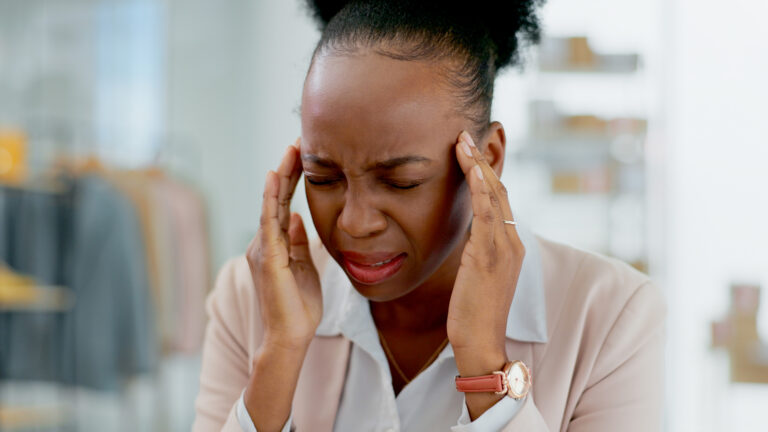Anxiety is a common challenge that many people face, and in Charlotte County, it’s a concern that touches a significant portion of the community. With nearly a quarter of Port Charlotte residents reporting feelings of little interest or pleasure in daily activities, addressing anxiety and related mental health issues is more important than ever. Fortunately, there are effective ways to manage anxiety without turning to self-medication. This guide explores practical strategies, community resources, and emerging therapies that can help residents find relief and regain control over their mental well-being.
Understanding Anxiety and Its Impact in Charlotte County
Anxiety manifests in many forms, from general nervousness to intense social anxiety or specific phobias. In Charlotte County, the mental health landscape presents unique challenges. The ratio of mental health providers to residents is about 1 provider for every 885 people, which is notably higher than the Florida state average of 1 provider per 622 people. This disparity can make accessing professional help more difficult for some residents, potentially leading to increased reliance on self-medication or untreated symptoms. The lack of available resources can create a cycle where individuals feel isolated in their struggles, further compounding their anxiety and making it even more challenging to seek out help.
Moreover, social and economic factors play a significant role in mental health. For example, over half of rented homes in Charlotte County cost 30% or more of household income, placing financial strain on many families. Economic stressors like these can exacerbate anxiety symptoms and make it harder for individuals to prioritize their mental health. Additionally, the high cost of living can lead to a sense of hopelessness, particularly among younger residents and families, who may feel trapped in a cycle of financial instability. This environment can foster a culture where mental health issues are stigmatized, preventing open discussions and support systems from forming within the community.
The Prevalence of Anxiety Symptoms
Data from Port Charlotte reveals that 25% of adults aged 18 and older often experience little interest or pleasure in activities, a common symptom linked to anxiety and depression. This statistic underscores the importance of accessible mental health support and effective coping mechanisms within the community. Furthermore, the prevalence of anxiety symptoms is often compounded by the lack of awareness regarding mental health resources available locally. Many residents may not know where to turn for help or may feel overwhelmed by the process of finding appropriate care. Community outreach programs and educational initiatives could play a pivotal role in bridging this gap, ensuring that individuals are informed about their options and the importance of seeking help.
Additionally, the impact of anxiety is not limited to individual experiences; it can ripple through families and communities. Children growing up in households where anxiety is prevalent may face additional challenges, such as difficulty in school or strained relationships with peers. This can create a generational cycle of anxiety that becomes increasingly difficult to break. Schools in Charlotte County could implement programs focused on mental health education, teaching children about emotional resilience and coping strategies from a young age. By fostering an environment that encourages open dialogue about mental health, the community can work towards reducing stigma and promoting a culture of support and understanding.
Why Avoid Self-Medicating?
Self-medicating—using alcohol, drugs, or unprescribed medications to manage anxiety—may seem like a quick fix, but it often leads to more harm than good. Substance use can mask symptoms temporarily but does not address the underlying causes of anxiety. Over time, self-medication can worsen mental health, lead to dependency, and create additional health complications. For instance, reliance on alcohol as a coping mechanism can result in liver damage, while misuse of prescription medications can lead to addiction and withdrawal symptoms that exacerbate anxiety levels.
Instead, adopting healthier, evidence-based strategies can provide sustainable relief and improve overall quality of life. These approaches help break the cycle of worry and fear without the risks associated with self-medicating. Techniques such as cognitive-behavioral therapy (CBT) have been shown to effectively alter negative thought patterns and behaviors that contribute to anxiety. Furthermore, engaging in regular physical activity can boost endorphin levels, enhancing mood and reducing stress. Mindfulness practices, such as meditation and yoga, can also cultivate a sense of calm and help individuals develop coping mechanisms that are both safe and effective.
Additionally, building a strong support network is crucial in managing anxiety. Connecting with friends, family, or support groups can provide emotional reassurance and practical advice, making it easier to navigate challenging situations. Sharing experiences with others who understand can foster a sense of belonging and reduce feelings of isolation that often accompany anxiety disorders. By prioritizing these healthier alternatives, individuals can empower themselves to face their anxiety head-on, paving the way for a more fulfilling and balanced life.
Effective Strategies for Managing Anxiety Without Medication
Mindfulness and Grounding Techniques
Mindfulness practices have gained widespread recognition for their ability to help individuals stay present and reduce anxiety. By focusing attention on the here and now, mindfulness interrupts the spiral of anxious thoughts and promotes calmness.
Experts from Futures Recovery Healthcare emphasize that “mindfulness techniques help ground you in the present moment, breaking cycles of worry and fear.” Simple exercises such as deep breathing, body scans, or guided meditation can be incorporated into daily routines and are accessible to most people. Moreover, engaging in mindfulness can enhance emotional regulation, allowing individuals to respond to stressors with greater resilience. Research suggests that even short, consistent mindfulness sessions can lead to significant improvements in anxiety levels, making it a practical tool for anyone looking to manage their mental health effectively.
Utilizing Community Resources and Support
Charlotte County has made strides in providing residents with tools to better understand and manage their health. The Florida Department of Health in Charlotte County recently launched an interactive Community Health Dashboard, offering insights into social and economic drivers of health, including mental health and substance abuse indicators.
This dashboard serves as a valuable resource for individuals and community partners to align efforts and allocate resources effectively. As Joseph Pepe, Health Administrator for the Florida Department of Health in Charlotte County, explains, “This dashboard is one more tool for our community and partners to align resources to better serve our community.” Additionally, community workshops and support groups are often organized to foster connection among residents, providing a safe space for sharing experiences and coping strategies. These initiatives not only enhance individual well-being but also strengthen the social fabric of the community, creating a network of support that can be crucial for those facing anxiety.
Exploring Virtual Reality Therapy
Innovative treatments such as self-guided virtual reality (VR) therapy are emerging as promising options for anxiety management. A recent systematic review found that VR therapy can effectively treat social anxiety disorder, public speaking anxiety, and specific phobias.
While VR therapy may not yet be widely available in all local clinics, it represents a growing field that Charlotte County residents can watch for as mental health services continue to evolve. This technology allows individuals to confront anxiety-provoking situations in a controlled, virtual environment, building coping skills without real-world risks. Furthermore, the immersive nature of VR can enhance the therapeutic experience, making it more engaging than traditional methods. As this technology becomes more accessible, it holds the potential to revolutionize how anxiety is treated, offering personalized experiences that cater to the unique triggers and challenges faced by each individual.
Building a Personalized Anxiety Management Plan
Managing anxiety effectively often requires a combination of approaches tailored to individual needs and circumstances. Here are some steps to consider when creating a personal plan:
- Identify Triggers: Understanding what situations, thoughts, or environments increase anxiety can help in developing targeted coping strategies.
- Practice Mindfulness Daily: Even a few minutes of mindfulness exercises each day can reduce baseline anxiety levels and improve emotional regulation.
- Seek Social Support: Connecting with friends, family, or support groups can provide emotional relief and reduce feelings of isolation.
- Access Professional Help: When possible, consult mental health professionals who can offer therapy and guidance tailored to your needs.
- Explore New Therapies: Stay informed about emerging treatments like VR therapy that might complement traditional methods.
Overcoming Barriers to Care
Given the provider-to-resident ratio in Charlotte County, some individuals may face challenges in accessing timely mental health care. Utilizing telehealth services, community programs, and online resources can help bridge this gap. Additionally, the Community Health Dashboard can assist residents in identifying local support services and programs designed to improve mental well-being.
Furthermore, it’s essential to recognize that stigma surrounding mental health can deter individuals from seeking help. Educational initiatives aimed at raising awareness and promoting understanding can play a significant role in changing perceptions. Engaging in open conversations about anxiety and mental health can empower individuals to seek the support they need without fear of judgment. Schools, workplaces, and community centers can all serve as platforms for these discussions, fostering an environment where mental health is prioritized and normalized.
Incorporating self-care practices into daily routines can also be a vital part of an anxiety management plan. Activities such as regular physical exercise, maintaining a balanced diet, and ensuring adequate sleep can significantly influence overall mental health. Journaling, for instance, can serve as a powerful tool for self-reflection, allowing individuals to articulate their thoughts and feelings, which can lead to greater self-awareness and emotional clarity. By integrating these practices into their lives, individuals can create a holistic approach to managing anxiety that addresses both psychological and physical well-being.
Conclusion: Empowering Charlotte County Residents to Manage Anxiety
Anxiety is a complex issue that affects many in Charlotte County, but it does not have to be managed through self-medication. With a combination of mindfulness techniques, community resources, emerging therapies, and personalized care plans, residents can find effective ways to reduce anxiety and improve their quality of life.
By staying informed and proactive, individuals can take meaningful steps toward mental wellness, supported by a community committed to health and resilience. Remember, managing anxiety is a journey, and help is available every step of the way.
If you’re a resident of Charlotte County looking for structured support to manage anxiety without resorting to self-medication, DeSoto Memorial Hospital Behavioral Health is here for you. Our Intensive Outpatient Program offers the intensity of inpatient treatment with the flexibility you need to maintain your daily life. With a range of services including group therapy, individual counseling, and psychiatric care, we tailor our approach to fit your unique journey towards mental wellness. Take the next step in your recovery and learn more about our Intensive Outpatient Services today.

